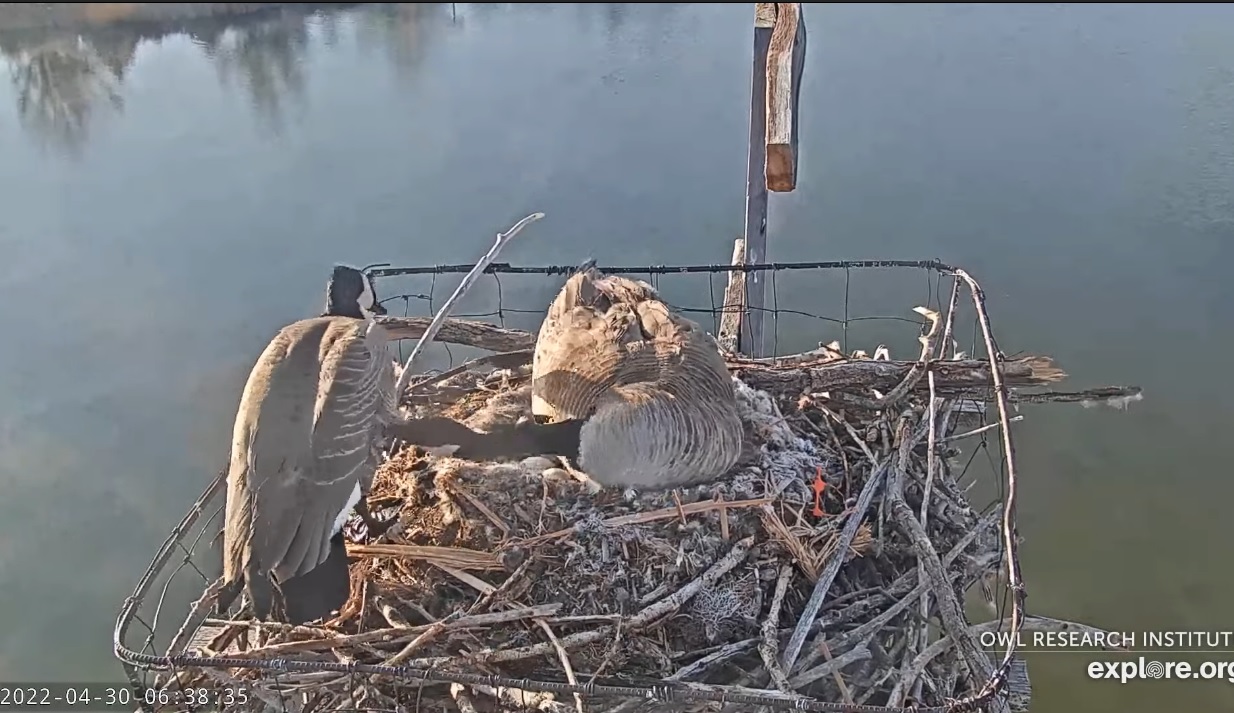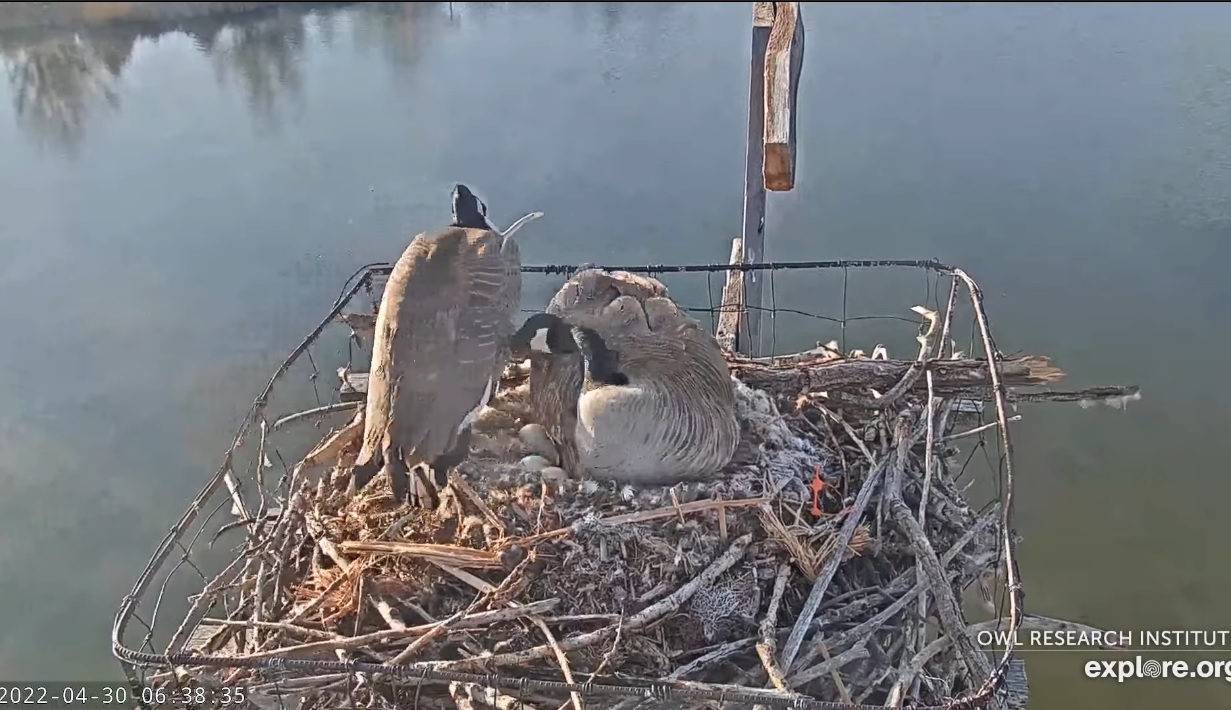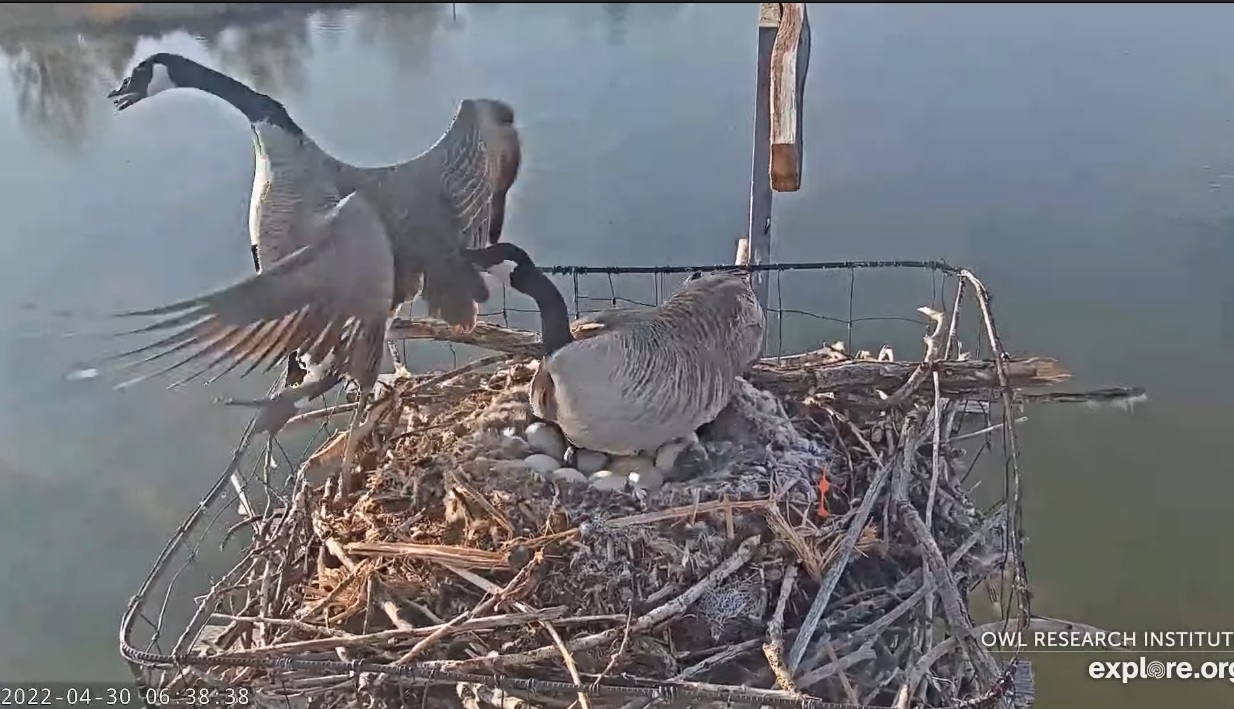Aiz spalvām rauj tēviņu sev klāt!
Tēviņš no ligzdas mūk prom!



Mēs nezinām sākotnējo 5 olu dēšanas datumus ligzdā, kad tiešraides palaišana notika 8. aprīlī. Inkubācijas periods — aptuveni 28 dienas— parasti sākas ar pēdējo izdēto olu — tāpēc nav iespējams paredzēt iespējamo izšķilšanās datums, ņemot vērā vairākas "olu kopdēšanas"[kāds ir latviešu valodā termins olu parazītismam?] un dažas neatbilstības inkubācijā . Tagad ligzdā ir vismaz 11 - varbūt 12 - olas un no vismaz 3 dažādām mātītēm. Skatīt — https://uploads.disquscdn.com/images/1d ... c1ef69.pngWe don't know the lay dates for the original 5 eggs in the nest when cam launched on April 8. The incubation period - roughly 28 days, give or take, typically begins with the last egg laid - so it's impossible to predict a possible hatch date considering the multiple "egg dumps" and some inconsistency in incubation. There are now at least 11 - maybe 12 - eggs in the nest from at least 3 different females. View — uploads.disquscdn.com
Multiple females have been seen incubating at various times, but it is very difficult to distinguish among the many players. With all of the nest activity/disturbances over the past week, it seems impossible to predict how many eggs will be viable. We will have to keep a close watch to see when hatching begins. The attending female will need to coax the hatchlings from the nest within approximately 24 hours and lead them to feed. At that point, any unhatched eggs will be abandoned...it remains to be seen if another female will take over brooding any remaining eggs and if any of them will, in fact, hatch.
For a study in contrast to the activities on this nest, you may want to visit the Canada Goose currently nesting in the abandoned Bald Eagles' nest at Decorah. There is a completely different vibe on that nest...very calm and peaceful.
Te notiek aktīvas ligzdas pārņemšanas aktivitātes ik dienu..tās ir mātītessandra3006 wrote: ↑30 Apr 2022 23:54 Nu baigā, mamma!
Aiz spalvām rauj tēviņu sev klāt!
Tēviņš no ligzdas mūk prom!

Nav nekas neparasts, ka Kanādas zosis inkubē citas mātītes olas. No emuāra, ko rakstījis Raptor Resource ProjectIt is not uncommon for Canada Geese to wind up incubating the eggs of another female. From a blog written by Raptor Resource Project
"About 26% of clutches included eggs that were unrelated or semi-related to the host female, which indicates parasitism or egg-dumping on the part of another female" Read the full blog here https://raptorresource.blogspot.com/2...
..




